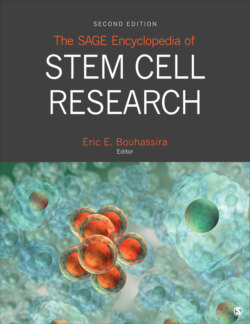Читать книгу The SAGE Encyclopedia of Stem Cell Research - Группа авторов - Страница 276
На сайте Литреса книга снята с продажи.
Cancer Cells Arise From Stem Cells
ОглавлениеStem cells are distinguished from other cells by two characteristics: (1) they can divide to produce copies of themselves, or self-renew, under appropriate conditions, and (2) they can differentiate into more specialized cell types. The ability to self-renew gives stem cells long life spans relative to those of mature, differentiated cells. It has therefore been hypothesized that the limited life span of a mature cell makes it less likely to live long enough to undergo the multiple mutations necessary for tumor formation and metastasis.
Increasing evidence supports a cancer stem cell (CSC) hypothesis—that cancer is initiated by a small population of tumor-initiating cells exhibiting stem cell–like properties. The characterization of CSCs will likely play a role in the development of novel targeted therapies designed to eradicate cells resistant to current chemotherapy regimens. The stem cell theory of cancer proposes that among all cancerous cells, a few act as stem cells that reproduce themselves and sustain the cancer, much like normal stem cells normally renew and sustain our organs and tissues, while cancer cells that are not stem cells cannot sustain an attack on our bodies long term. The idea that cancer is primarily driven by a smaller population of stem cells has important implications. For instance, many new anticancer therapies are evaluated based on their ability to shrink tumors, but if the therapies are not killing the cancer stem cells, the tumor will soon grow back (often with a vexing resistance to the previously used therapy).
